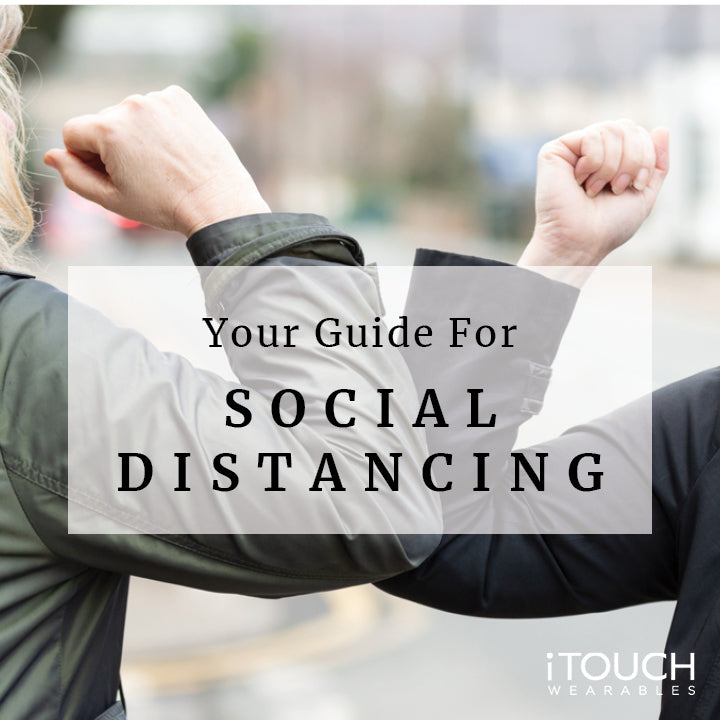
Your Guide For Social Distancing
Social Distancing - where did that term even come from? It is a weird thing to think about, but during these strange times, it might just be one of the most crucial things we need to start adapting to our lives to ensure our safety and those of others.
With the number of COVID-19 cases increasing every day, psychologists offer insights on how to separate yourself from others, while still getting the social support you need. Around the world, public officials, such as the World Health Organization, have been asking people who have contracted or been exposed to the new coronavirus to practice social distancing. In some more extreme cases, those may even need to be quarantined or also isolated to slow disease spread. These terms, while even though they practice similar concepts, do vary in their seriousness or severity. For example:
- Social distancing is a practice in which one is keeping a safe distance (approximately 6 feet) from others while also avoiding gathering spaces such as schools, retailers, concert halls, and public transportation.
- Quarantine involves avoiding contact with others if a person has been exposed to coronavirus to see if they become ill.
- Isolation means separating an individual who has contracted COVID-19 to prevent them from spreading it to others.
While spending days or even weeks at home with limited resources, stimulation and social contact can take a toll on mental health, there have been numerous studies that have shown that while these practices can be draining, psychologists have established the best possible aid for handling these new challenging circumstances.
Here is your guide on social distancing, quarantine, and isolation, as well as recommendations on how people can cope if asked to take these cautionary practices:
What To Expect

People who have been asked to stay home due to illness, exposure, or active community spread of COVID-19 will likely have to commit to changing their regular routines for at least two weeks or possibly more. With this being said, there are numerous familiar sources of stress:
- Lack of motivation to complete meaningful activities
- A drop in one's social engagement
- Financial strain from not being able to go to work
- Lack of access to typical coping strategies such as going to the gym or attending religious services
When it comes to this, psychologists have researched that during a period of social distancing, quarantine, or isolation, you may experience:
Anxiety
It is perfectly normal to experience anxiety or fear about yourself or your family members contracting COVID-19 or spreading it to others. It is normal to have concerns about obtaining food and personal supplies, taking time off work, or fulfilling family care obligations. Some people may have trouble sleeping or focusing on daily tasks. The importance of these issues is to plan and keep your goals align during this time. Invest in time management while planning grocery runs or supply runs, and keep up ways to find motivation.
Depression or Boredom
While a hiatus from work may sound like a dream, sometimes getting away from work and other meaningful activities can interrupt your daily routine and may even cause you to experience feelings of sadness. During these times as well, you may be experiencing feelings of boredom and loneliness. It is essential to take the time to socialize in new ways, whether it will be through FaceTime, virtual meetings, or even writing letters.
Anger or Irritability
The loss of personal freedom associated with isolation and quarantine can often feel frustrating, with some even experiencing anger or resentment toward those who have issued quarantine or isolation orders. It is crucial that we practice an attitude of gratitude and be thankful for the things that we have and for our health. Take time to practice mindfulness or meditation, do some writing, blogging, or journaling, or even take time to make your favorite foods! You will see how the day will go by, and you will feel less stressed and irritable.
How To Cope

With these universal feelings and concerns a standard feat for dealing with isolation, there are many ways to manage these difficult conditions as proven by psychological studies. If you know that you will be dealing with some form of social distancing, quarantine, or isolation, experts recommend planning by considering how you might spend your time, which you can contact for support, and how you can address any physical or mental health needs you or your family may have.
Limit News Consumption
While there is an importance in obtaining accurate and timely information regarding COVID-19 and Coronavirus, but too much exposure to media regarding the virus can actually lead to increased feelings of fear and anxiety. Try balancing your time spent on news and social media with other activities unrelated to quarantine or isolation, such as reading, listening to music, or doing yoga. Trusted organizations, including the U.S. Centers for Disease Control and the World Health Organization, are ideal sources of information on the virus.
Create A Daily Routine
Having a daily routine that is maintained over the course of your distancing period can help both adults and children preserve a sense of order and purpose in their lives despite the anxieties of the unknown regarding the virus. Try to include regular daily activities, such as work, exercise or learning, even if they must be executed remotely.
Stay Connected With Others Virtually
Your face-to-face interactions may be limited, but psychologists suggest using phone calls, text messages, video chat, and social media to access social support groups or networks. If you’re feeling sad or anxious, use these conversations as an opportunity to discuss your experience and associated emotions. Reach out to those you know who are in a similar situation. These are also good practices to find connections in other ways, such as Face-Timing friends for a movie marathon or having a self-care session over wine and face masks.
While these times may be tough, there are certainly many ways to practice self-care and self-love during these times. Use the social distancing as a time to work on goals you couldn't before, start new projects, or practice skills you want to master. Share with us what you want to learn to do during this time by following us on Instagram @itouchwearables and Facebook @itouchwearables and by dropping a comment and like. Check out new blog posts published daily!
- Patrick


